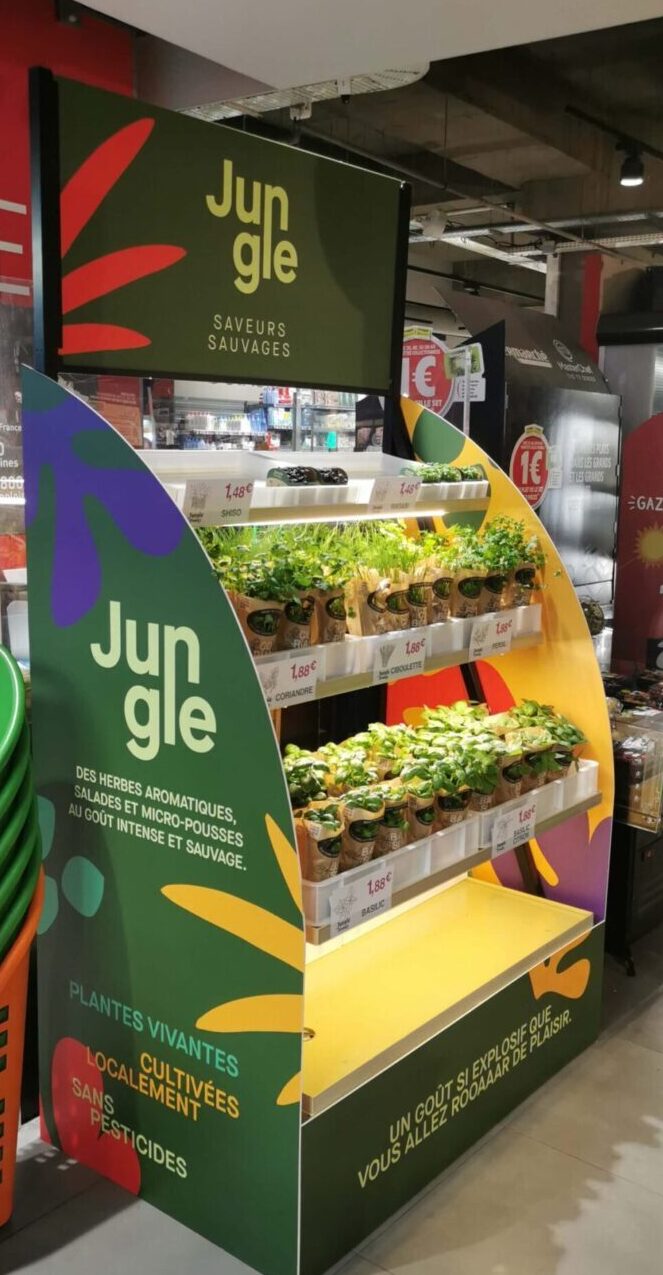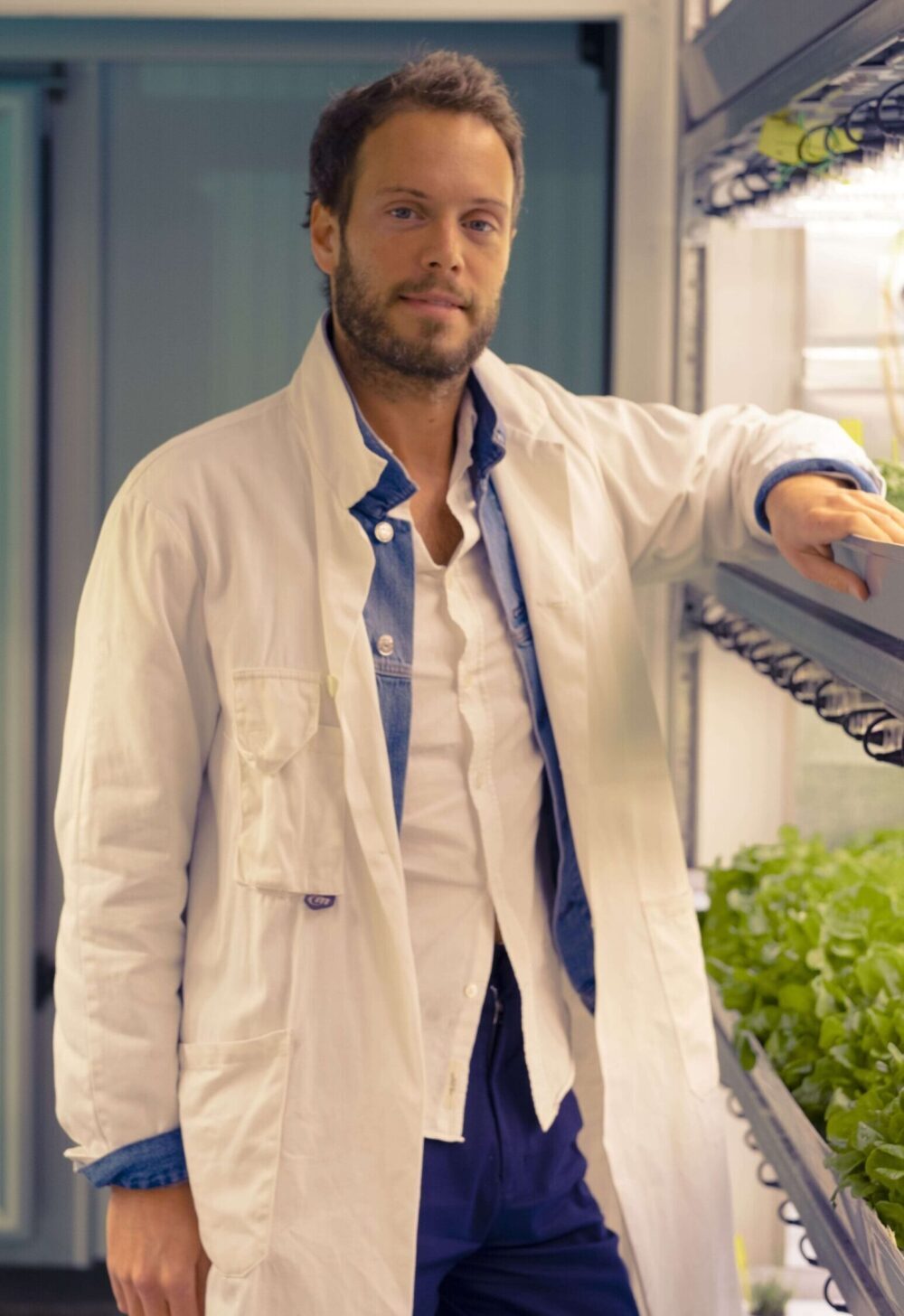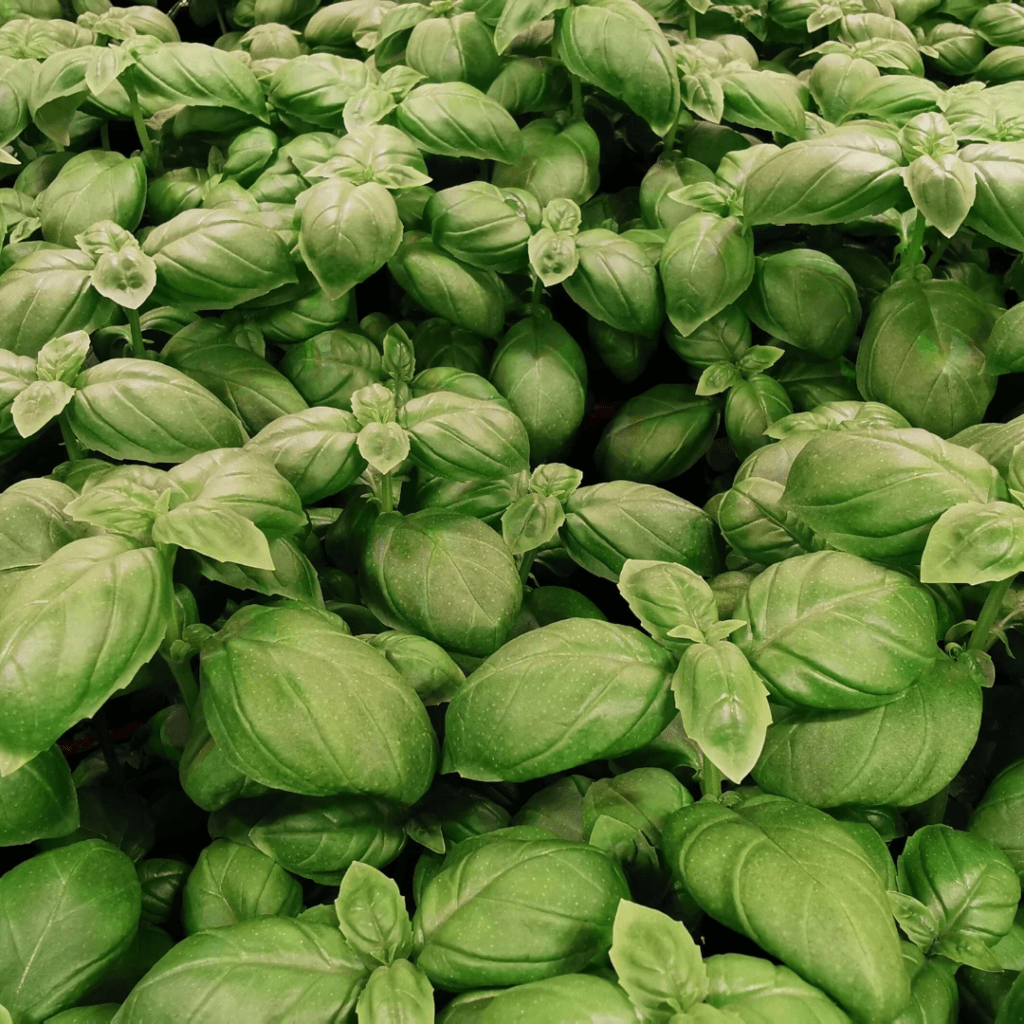French agritech Jungle announced a successful €42 million fundraising round at the end of March, a combination of equity and debt financing that will fuel its European expansion. The funding is being used to scale the company’s operations and deliver on ambitious plans to bring greater profitability and scalability to the world of vertical farming.
The €7 million in equity investment comes from Founders Fund, a French investment firm concentrated on impact start-ups, and Demeter Partners, an ecologically focused venture capital firm, with participation from Jungle’s existing investors. Atlante Gestion, a French asset management firm, provided €35 million in debt financing.

Largest vertical farm in Europe
Jungle aims to expand its capacity to offer vertical farming across Europe, building on a solution that the company claims can produce between 10 and 30 times the yields of greenhouse- or field-grown crops.
Vertical farming involves cutting-edge, indoor cultivation of plants in vertically stacked growing beds. Jungle’s founders believe that their economy-of-scale strategy will make all the difference in a field burgeoning with young companies.
“Price depends on scale and we’re not aiming for small-scale farms, we’re aiming for less farms but a lot bigger. If you activate the economies of scale you can get a very reasonable product,” Gilles Dreyfus, Jungle’s co-founder and CEO says.

The company currently produces aromatic herbs, such as coriander, parsley, and basil, salads, shoots, and flowers — selling them with their growing media in the fresh produce sections of shops.
“Our motivation is knowing that Jungle has the ability to positively impact the way in which we consume as a society,” says Dreyfus.
“We were willing and open to the shift in the agricultural industry towards more environmentally friendly solutions, having the capacity to mass produce without pesticides,” explains Dreyfus, who has a background in finance.
Jungle is building its new vertical farm in Château-Thierry, 80km from Paris, where once completed it will cover 5500m2 over 17 floors. The site is already partially operational and has already secured supply contracts with local supermarket chains. The aim is to serve over 2000 points of sale within the next 24 months, offering fresh herbs, plants, and flowers at highly competitive prices.
Jungle aims to build four more vertical farming sites by 2024 and has targeted a production capacity of 10 million plants by 2022. The company achieved a turnover of €70,000 in 2020 with a total production of 50,000 plants. The aim is €3 million in sales in 2021, moving to €10 million by 2022.
With recent investment funds, Jungle plans to double its workforce in 2021 to around 50 employees, aiming for 100 by 2024. Jungle-grown cherry tomatoes and mushrooms should hit the market in 2023.
The logic of vertical
Worth €1.89 billion in 2018, the global vertical farming market is expected to reach €10.8 billion by 2026.
The promise of this sector lies in its capacity to reduce waste, remove pesticides, cut the farming carbon footprint, and drastically increase output yields. This places vertical farming centre stage in the bid to solve the dual challenge of global food insecurity and climate change.
Jungle says that not only do its plants travel a tenth of the distance from farm to plate, but they also use only 5% of the water that equivalent greenhouse-grown crops do. Compared to field-grown plants, the water use is a fraction of 1%.
Carbon dioxide emissions are also greatly reduced, at around 60% that of greenhouse and field crops. Yield weights by area are also far higher.
Another strength of vertical farming is its appeal to national sovereignty, a consideration especially playing on the minds of governments and consumers at the moment.
“We have to go further and further from the country to get crops when they’re out of season,” Dreyfus says. “Brexit import taxes on food have shown the complicated situations this can lead to.”

With customers increasingly wanting vegetables off-season, compromises are sometimes made in terms of quality, price, or travel miles. Localised vertical farming has the potential to answer each of these questions.

